A few days ago as we sat discussing the day’s events, my brother surprised us with a piece of news. “Guess what?” he gushed, enjoying every moment as my sister and I looked at each other. “What?” we asked in unison. “Another school’s opened within the neighbourhood.”
A few days ago as we sat discussing the day’s events, my brother surprised us with a piece of news. “Guess what?” he gushed, enjoying every moment as my sister and I looked at each other. “What?” we asked in unison. “Another school’s opened within the neighbourhood.”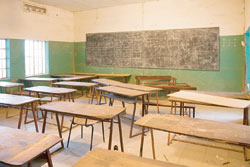
Another. There’s already an ‘Islamic’ school providing elementary and middle-school tuitions in the area. Those who prefer and can afford having their children educated from schools of higher standard are granted the ease of that privilege too. So, why this? How can this be beneficial?
It’s understandable that life in metropolis is pretty much determined by your social stratum. It shouldn’t surprise us then that education, a social programme to impart and inculcate in students skills and knowledge through a well-conceived learning course, is divided as well. There are at least four systems effective at present: you have the Cambridge system (whose mushroom growth is due mostly for its reliability and international recognition); you have the Board of Secondary Education; the Aga Khan University Education Board (AKU-EB); and the Federal Board of Intermediate and Secondary Education (FBISE). Student’s individual capabilities aside, there’s no doubt that there are at least three types of professionals each Board is producing: “well-educated”; “mediocre”; and “below average” and not necessarily controlled along these lines.
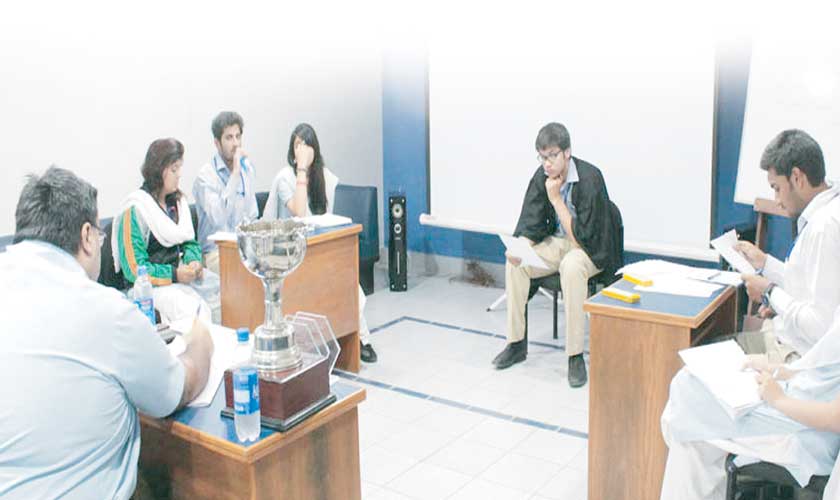
You know, there’s a reason why most parents feel guilty of even thinking to have their children homeschooled. There is the pressure - by society or self-imposed - that they won’t be able to provide the young ones with due attention and the quality of education as required at their age. The teachers, on the other hand, can and will. So, while that’s a mindset, which is additionally not going anywhere soon, we see a burgeoning force of teachers who are basically women (or men) filling in the space, unqualified and untrained for the specialised education they are supposed to impart.
Unfortunately, this is as much real for private schools and colleges as it is for government ones. The latter, however, do not constitute as primary choices for allegedly hiring ghost employees. That and the setup of multiple shifts during the course of day - morning, afternoon, evening - makes it near impossible to enjoy proper, well-kept learning spaces. The classrooms have, for one, insufficient and poorly-maintained furniture. Sub-standard lighting and acoustics make it impossible for students to pay attention and grasp anything.
On the other hand, most of the private schools, at their end, are pigeonholes as well. Functioning within the walls of rented homes, correct me if I am wrong to say that there is a dire lack of open space for P.E. periods or labs for practicals or a library to inculcate healthy reading habits. And it is despite charging parents hefty fees in the same regard. The owners come across as money-minded individuals; a fee voucher is issued every now and then, which mentions separate charges for tuition, sports activities, security, etc respectively. Come new year, every year, these entail parents to part with dear money for June-July as well - not just for the satisfaction of the school admin, but also for the van drivers who would otherwise leave no stone unturned in harassing you and your kid. Let’s not forget the (very strange) idea of having to send their children to tuition centres - popping up right, left, and centre of the city and on which I will elaborate later - that middle-class folks are further burdened with.
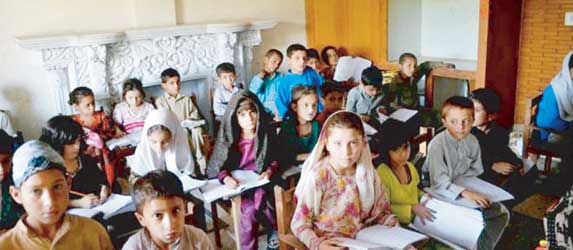
A parent (who chose anonymity) pays approximately Rs. 75,000 on a quarterly basis to fund education of his three children who are studying in two separate, reputed educational institutions in Defence. This fee is besides the annual charges and, of course, the summer vacations (June-July). A senior banker by profession, he agrees that a big chunk of his salary goes as tuition fees.
Contrarily to the above-quoted fee structure, a mother, when approached, disclosed that she pays Rs. 1700 per month as tuition fee for her son who is enrolled in an ordinary English-medium school in Gulshan. The mother, whose two daughters are studying medicine in reputed medical college on Super Highway, says she is lucky to make ends meet as her husband works in the U.S.
Also, the chain of schools breeding means parents, unlike ones of yesteryears, are never quite relieved of the tension after having enrolled their child in an institution. Where previously a child admitted to Grade I would have made it safely up till Matric studying under one roof only, it’s not the case at the moment. The bifurcation insists he/she experiences their nursery levels at one place and primary at another before shifting to a third building which exclusively focuses on secondary classes.
A similar case of deteriorating or appalling standards implemented for secondary education was identified back in 1995 by 16 private schools. An intervention led to requesting the Aga Khan University, which was at that time, too, regarded as an esteemed education institution, to set up an examination board and as well as award Secondary School Certificates; it was established in 2003 and has 43 schools, including different campuses, affiliated with it. Last but not the least, there is FBISE, the giant with a responsibility to affiliate institutions that are providing SSC and HSSC education and prescribe courses therein in addition to holding exams (and appointing supervisors/examiners), providing necessary facilities, and ensuring well-being of students. Contrary to the rest of the systems mentioned, the Islamabad-based board runs educational institutes across the country, conducting combined exams for Grades IX and X.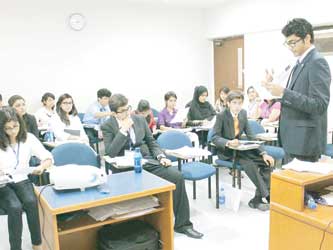
With no check and balance so far, the absurd flaws that are seeping into our education system are slowly rotting it. For instance, one trend of late is regarding the nursery admissions. Parents, following their debate on the schools they want to send their children - social status vs. personal comfort - come along with their children where they are interviewed while their children observed keenly for motor/vocabulary skills. They are, then, stressed out waiting for the nursery result list to see whether they have failed their four-year olds or not. Does it sound unreal? Are we judging the young parents for being too fussy (as was seen on a popular social media group a few days back) or is the system to be blamed to what it has come to? Both to some extent, I guess. A product, howsoever illogical, only sells as long as there is a customer to buy it.
That is exactly the point with the coaching centres also. From massive billboards to chalking on walls to placing advertisements in top newspapers every weekend (literally!), the owners of tuition centres are willingly spending huge amounts of money. Why? Because they know how badly parents want their son or daughter to bag first position in their class. Because they know that their son or daughter will find it easy to convince their parents, given they hesitate first, that it is essential to their schooling since everyone in their class is taking these ‘extra classes’ from their teacher only at this respective centre. This is, in fact, the dishonesty of the teachers who are not dedicated to their profession or to the children whose future they are readily putting at stake. This has been observed in schools as well as colleges that teachers don’t really bother teaching over there; instead, they ask their students to enrol in at the various coaching centres where they would get guess papers and, thus, will be able to secure A grades in their examinations.
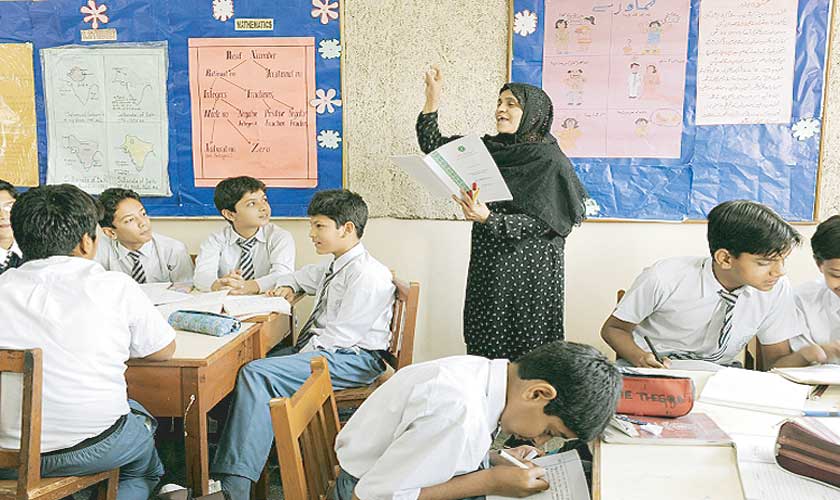
There’s a possibility that my words fall on deaf ears for I am writing on a oh-not-so-important topic. I know the field of education is not so interesting for many people even though it’s like omnipresent in their lives. Yet, I still write not because I must as part of my job or because I have suffered a personal injury at the hands of any related stakeholders, but because there’s a dire need to question where we as a family, as a nation, are heading towards with this sort of education. Parents start planning for the future of their children ever since the little one celebrates their second birthday; some do even prior to achieving that milestone. Only now have they become more comfortable with their children dabbling with subjects other than science and engineering. Why would anybody want to mess it up by being immune to the type of education they are getting? If an MBA degree-holder, for instance, is unable to pen a proper letter when requested or secure a stable job, what good has come out of sending them to a ‘well-reputed’ institution they could afford? Isn’t that education equivalent to something we’d call going down the drain?